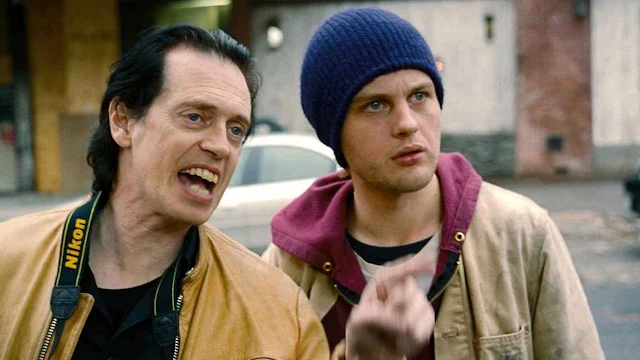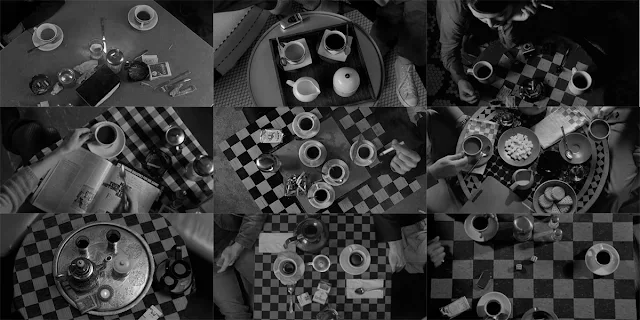 |
| Steve Buscemi and Michael Pitt in Delirious |
Celebrity is a broad target for satire, but writer-director Tom DiCillo finds the right weapon for hitting it: He makes his protagonist a paparazzo named Les Galantine, played by Steve Buscemi with his usual high-strung, terrier-like intensity and vulnerability. Trying one day to shove aside the other paparazzi and get the right picture of the latest pop music phenomenon, K'Harma (Alison Lohman), Les encounters a homeless kid named Toby (Michael Pitt), hanging around the fringes of the shoot. With his usual impulsive bark-is-worse-than-his-bite manner, Les at first abuses the kid, and then lets him crash in his apartment. Toby is sweet but a little dim: When Les explains that every paparazzo is in search of "the shot heard around the world," the photo that will make his reputation, Toby clearly doesn't know the origin of the phrase. Still, when he proves useful in capturing a shot of a celebrity who has just had surgery on his penis, Les empties a closet for Toby to use as a bedroom and makes him his unpaid assistant. But gradually the dynamic between the two shifts: K'Harma had noticed the good-looking Toby, who wants to be an actor, and so does a casting director (Gina Gershon) when he tags along with Les at a celebrity event. Before long, it's Toby whom the paparazzi are pursuing, much to Les's fury. DiCillo keeps the satire well within the confines of his story, and his actors never let it overwhelm the characterization of Les and Toby and K'Harma.














